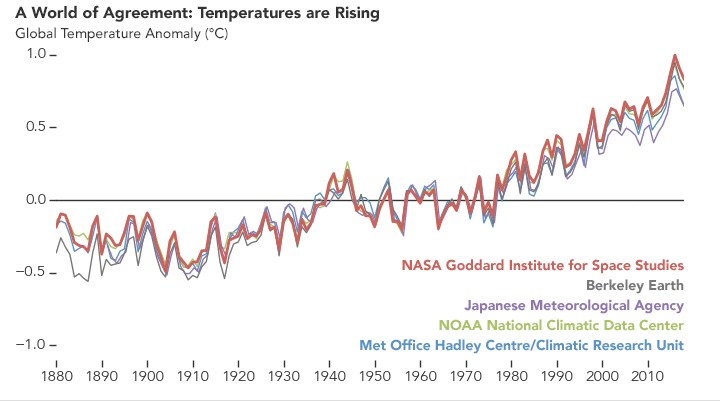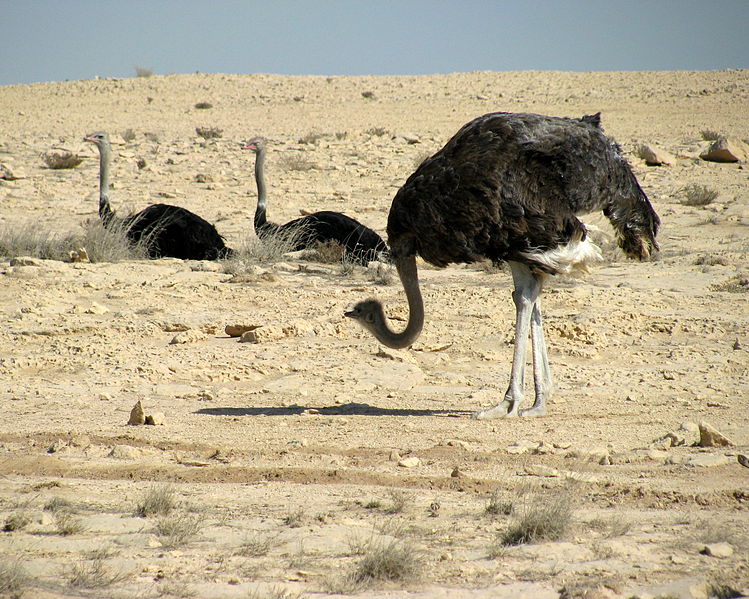Climate change denial is real and terrifying. Outside my cosy circle of people who understand facts, deniers skulk in the shadows, occasionally pouncing on a hapless fence-sitter.
I assume you are not one of the misinformed. This is a science blog.
Arguing with science deniers is usually futile. They have made up their mind and they operate with the assumption that their point of view is true. If they were open to the fact that anthropogenic climate change is real, they would probably have been convinced long ago.
However, getting evidence and reason out into the world is never a bad thing. Some deniers don't understand how climate change works; explaining the basic processes behind it may help turn their viewpoint. Laying out some facts may also help some fence sitters see your argument and hop off their fence.
If you're up for a fight, here are some evidence nuggets I have compiled about climate change. I have paired them with common denier arguments, for ease of reference. Feel free to use them anywhere.
#1: The climate isn't changing.
The most simple argument of all, but amazingly people still believe that the global climate isn't changing. However, the rest of us cannot ignore the enormous body of evidence that the climate is changing:- Snow in the northern hemisphere is melting earlier, and covering a smaller area, than it did 50 years ago.
- Since 1993, the global mean sea level had risen by over 7 cm as of 2018. In recent years it has been rising more quickly.
- Oh yeah...and the average global temperature has risen steadily since the 1920s, and is now 0.9 degrees warmer now than it was back then.
 |
| You have to stick your head pretty deep in the sand to ignore our changing climate. Image: NASA |
#2: The climate is changing, but it's just a natural part of the Earth's cycle.
Since the Earth formed, its climate has shifted from warm all over (with a tropical average temperature, around 25 degrees Celsius) to a frozen planet with extensive ice sheets. The Earth naturally fluctuates between ice ages and warm greenhouse periods.But current climate change patterns show rapidly increasing average global temperatures, combined with dramatic and unpredictable weather patterns, that are unprecedented unless you take humans into consideration.
#3: If we're going through global warming, how come we just had a particularly cold, brutal winter?
This argument is one of the reasons that climate change is a better term than global warming. The idea that global warming means warmer weather is gross oversimplification and misunderstanding of the concept of climate change.The process of global warming means that the average temperature of the Earth is rising. Because of the way weather works, a slight rise in global temperature does not mean lovely warm weather for everyone. Rising temperatures mean changing weather patterns, and rarely in a nice way.
In some areas, warmer temperatures mean decreased rainfall, dried-out, flood-prone soil, and tinderbox vegetation that goes up in smoke at the drop of a cigarette. In other areas, warmer temperatures mean more rain or snow. The average annual rainfall in the USA has increased, as has the incidence of weather events such as thunderstorms and hurricanes.
#4: Most scientists reject the idea that humans are causing climate change.
There are multiple papers on the scientific consensus on anthropogenic climate change (it's somewhere between 90% and 100%, depending on the sampling method). Still, deniers continue to press the idea that scientists reject climate change. For some of them, this idea is all that stands in the way of them accepting the reality.If you search hard enough, you will find a scientist who questions anthropogenic climate change. Their question is usually voiced in a small journal that nobody reads, and it is full of holes and largely unscientific. Scientists are humans too.
These niggly papers do not stand up against the overwhelming force of scientific evidence (not just opinion!) that says anthropogenic climate change is real.
So there you have it: four common arguments often posited by climate change deniers, and some evidence nuggets to tuck away in your pocket for when a good meaty discussion breaks out. Just remember: unlike the Earth, keep your cool.
 |
| Unlike humans, ostriches don't keep their heads in the sand. |


Comments
Post a Comment